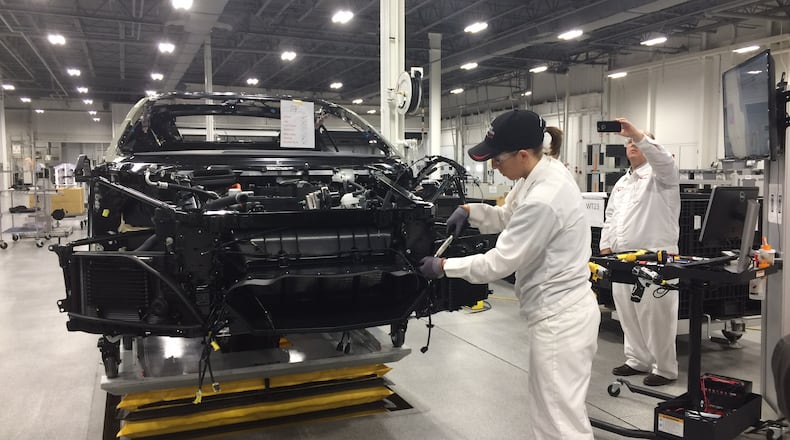Kelli Felker, Ford global manufacturing and labor communications manager, told the Detroit Free Press that “We are working closely with suppliers to address potential production constraints tied to the global semiconductor shortage.”
And Nikkei Asia reported Friday that Honda Motor “will reduce vehicle production due to a supply crunch in semiconductors.”
The change will slow production of the Honda Fit subcompact manufactured at a plant in Suzuka, Japan, Nikkei Asia said.
And it could get worse. “The period starting in February may be grim,” an unnamed source told Nikkei Asia.
The report says Honda will not halt factory operations this month, but the company is expected to limit the daily number of vehicles produced.
“Due to a shortage of semiconductor microchips, Honda’s purchasing and production teams are currently evaluating this issue in the effort to limit the impact of this situation on our production in North America and maintain our ability to meet the needs of our customers,” Chris Abbruzzese, a Honda spokesman in Ohio, said in an email to the Dayton Daily News and Springfield News-Sun.
General Motors spokesman David Barnas told the Dayton Daily News Friday there is no production impact right now on the DMAX plant in Moraine, which GM jointly owns with Isuzu, or on other GM Ohio plants.
Barnas added, however: “We are aware of the increased demand for semiconductor microchips as the auto industry continues its global recovery. Our supply chain organization is working closely with our supply base to find solutions for our suppliers’ semiconductor requirements and to mitigate impacts on GM production.”
Multiple reports says that automakers worldwide are competing for an increasingly tight supply of these computer chips.
The devices are used not only in cars and trucks, of course, but computers and mobile phones. Demand for computers in particular has risen during the pandemic, especially with more students attending classes online from home.
Earlier this year, the COVID-19 emergency forced Honda to do something it had never done in Ohio: temporarily lay off full-time employees.
For a time, Honda’s 8,000 production employees in Ohio were not being paid beyond company benefits. The company is one of the Dayton and Springfield area’s largest employers.
About the Author

